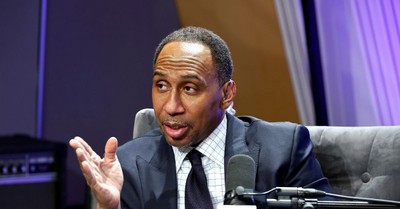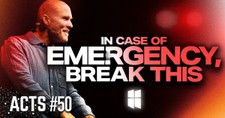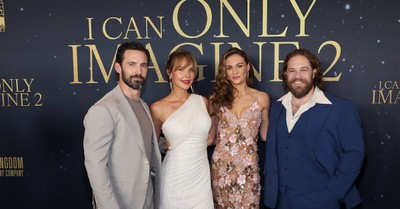
Trending Articles
Recent News
American Jaccob Slavin, Fueled by Faith, Helps Lead USA to Historic Olympic Gold Dallas Jenkins Unveils ‘The Chosen’ Season 6 Release Date, Says Season 7 Filming Is Near Drug Lord Killed in Mexican Military Operation with US Support New York Legalizes Physician Assisted Suicide Train a Child Up, Before the World Does Bob Goff on Faith, Israel, and Loving One Another 4 Reasons You’ll Love I Can Only Imagine 2 Disturbing Ransom Emerges in Nancy Guthrie Case as FBI Turns to Genetic Genealogy Hope: What It is and Why It Matters Celebrities, Ministry Leaders, Elected Officials Gather to Read Bible in Celebration of America's 250th Anniversary Rick Warren Reflects on Ministry, Mentorship, and Mission Mark Wahlberg and Jonathan Roumie Share the Importance of Prayer on The View
Trending Articles
Recent News
American Jaccob Slavin, Fueled by Faith, Helps Lead USA to Historic Olympic Gold Dallas Jenkins Unveils ‘The Chosen’ Season 6 Release Date, Says Season 7 Filming Is Near Drug Lord Killed in Mexican Military Operation with US Support New York Legalizes Physician Assisted Suicide Train a Child Up, Before the World Does Bob Goff on Faith, Israel, and Loving One Another 4 Reasons You’ll Love I Can Only Imagine 2 Disturbing Ransom Emerges in Nancy Guthrie Case as FBI Turns to Genetic Genealogy
Positive Stories
Celebrity
Video
Opinion
Church
Entertainment
Sports
Movies
Politics
Israel
Christian News Headlines - Breaking and Trending Religion News
Crosswalk Headlines - Christian news brought to you by a group of Christian writers and editors who are dedicated to creating a well-rounded look at what’s happening across the globe from a Christian worldview. Our vision is to inform and inspire productive discussion about the current events and online trends that shape our lives, our churches and our world.Crosswalk Headlines includes blog posts about current events and Christian media, breaking news, feature articles, and guest commentaries, many written by respected Christian thinkers.




































































